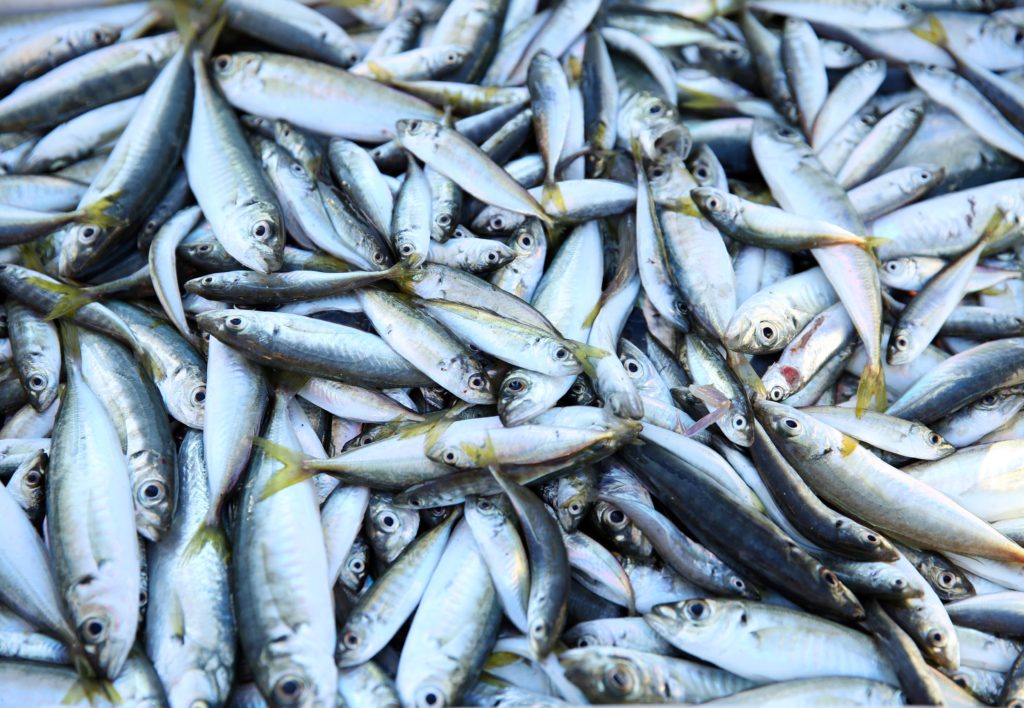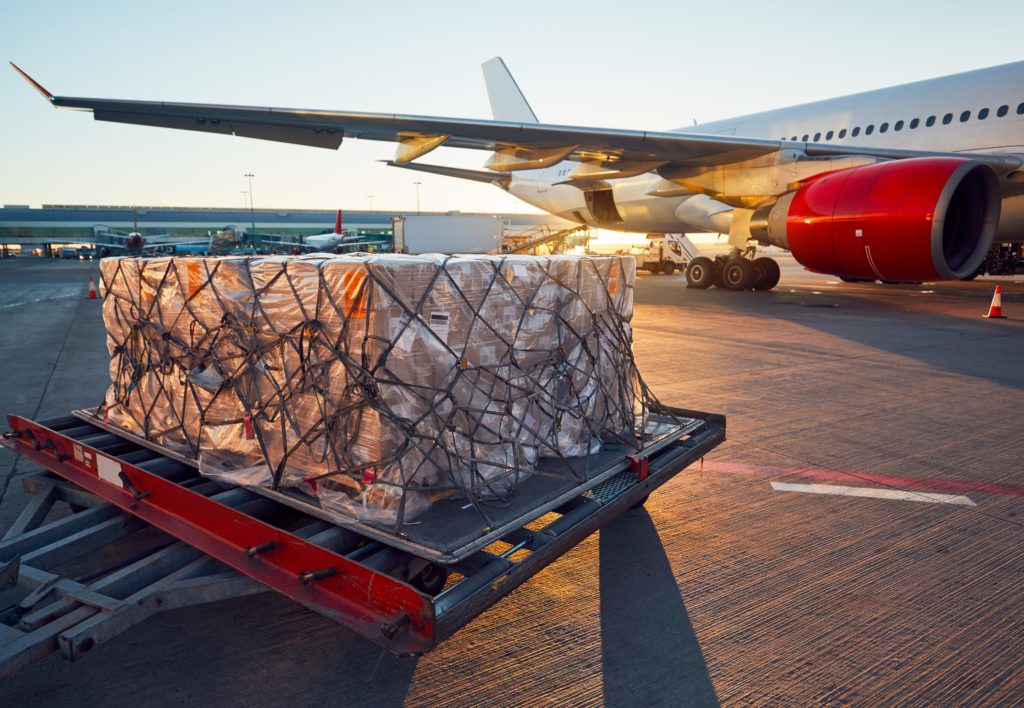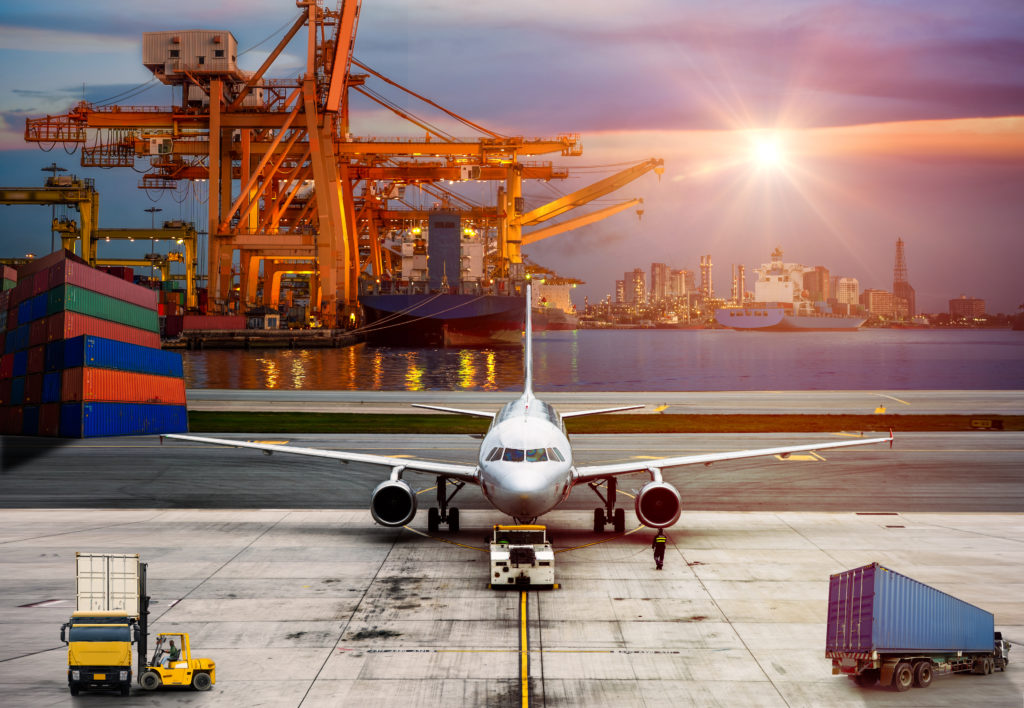Customs Ruling Country of Origin UKFTA Case 01
United States and Korea Free Trade Agreement
Country of Origin and Preferential Tariff Status
Country of Origin and Preferential Tariff Status of Frozen Tuna Loins Under UKFTA
The product under consideration is “Frozen Tuna Loins“ imported from Korea. Originally, the tuna is caught by a Chinese-flag vessel in Chinese ocean waters. Onboard the vessel, the heads, tails, gills and guts will be removed from the fish, which will then be frozen and exported to Korea. In Korea, fish will be processed into loins, frozen, vacuum packed individually and then exported to the United States.
What is the country of origin of the “Frozen Tuna Loins“?
Customs Regulations 19 CFR Section 134.1(b) defines the country of origin as the country of manufacture, production or growth of any article of foreign origin entering the U.S. Further work or material added to an article in another country must effect a substantial transformation in order to render such country the country of origin within the meaning of Part 134 of the regulations.
Regarding fish products similar to this case, it is a longstanding position of U.S. Customs and Border Protection (CBP) that the conversion of whole fish (including headed, de-tailed and eviscerated whole fish) into boneless portions (e.g., fillets) constitutes a substantial transformation. In Koru North America v. United States (1988), the court considered whether the processing of headed and gutted fish in South Korea by thawing, skinning, boning, trimming, freezing, and packaging constituted a substantial transformation. The court concluded that the processing performed in South Korea into “quick- frozen” fillets substantially transformed the headed fish because there was a change in name and character. The court noted that while the fish arrive in South Korea with the look of a whole fish, when they leave, they no longer possess the essential shape of a fish. The fillets were considered discrete commercial goods and had a different tariff classification.
In the case under consideration, the tuna is caught by a Chinese-flag vessel in Chinese ocean waters. Onboard the vessel, the heads, tails, gills and guts will be removed from the fish, which will then be frozen and exported to Korea. In Korea, fish will be processed into loins, frozen, vacuum packed individually and then exported to the United States.
Here, CBP finds that the processing in Korea is a substantial transformation, and that therefore the country of origin of the finished product, “Frozen Tuna Loins,” is Korea. The packages should be marked accordingly, e.g., “Product of Korea.”
In-Depth Coverage: Country of Origin
- Country of Origin of Imported Merchandise
- Customs Ruling: Country of Origin
- Country of Origin: Food Products
- Country of Origin: Chemical and Pharmaceutical Products
- Country of Origin & Country of Manufacture: CBP vs. FDA
- Country of Origin: Substantial Transformation or Country of Assembly Test
- Country of Origin and Free Trade Agreement
- Country of Origin and Section 301
Are the imported “Frozen Tuna Loins“ are eligible for preferential tariff treatment under the United States – Korea Free Trade Agreement (UKFTA)?
Originating goods under the terms of the United States-Korea Free Trade Agreement (UKFTA) are eligible for the preferential tariff treatment. General Note 33, the Harmonized Tariff Schedule of the United States (HTSUS) sets forth the criteria for determining whether a good is originating under the UKFTA.
General Note 33(b), HTSUS, states that:
(b) For the purposes of this note, subject to the provisions of subdivisions (c), (d), (n) and (o) thereof, a good imported into the customs territory of the United States is eligible for treatment as an originating good of a UKFTA country under the terms of this note if—
(i) the good is wholly obtained or produced entirely in the territory of Korea or of the United States, or both;
(ii) the good is produced entirely in the territory of Korea or of the United States, or both, and—
(A) each of the nonoriginating materials used in the production of the good undergoes an applicable change in tariff classification specified in subdivision (o) of this note; or
(B) the good otherwise satisfies any applicable regional value-content or other requirements set forth in such subdivision (o); and satisfies all other applicable requirements of this note and of applicable regulations; or
(iii) the good is produced entirely in the territory of Korea or of the United States, or both, exclusively from materials described in subdivisions (i) or (ii), above.
For the purposes of this note, the term “UKFTA country” refers only to Korea or to the United States.
In this case under consideration, CBP finds that the merchandise imported into the United States does not qualify for preferential treatment under the UKFTA since none of the above requirements are met.
(1) Because the tuna is of Chinese origin, the product is not wholly obtained or produced entirely in the territory of Korea or of the United States, or both. Therefore, the subdivision (i) is inapplicable.
(2) In Korea, the non-originating tuna loins from China undergo a tariff classification shift from heading 0303, HTSUS, to heading 0304, HTSUS, whereas the pertinent GN 33(o) rule requires a shift from another chapter of the tariff schedule. Therefore, the subdivision (i) is inapplicable. Consequently, the subdivision (iii) is inapplicable.
In-Depth Coverage: Importing Medical Device
Additional Requirement
Seafood Labeling Requirement – United State Department of Agriculture (USDA)
Seafood is subject to the Mandatory Country of Origin Labeling (“COOL”) requirements administered by the USDA’s Agricultural Marketing Service (AMS). Country of Origin Labeling (COOL) is a consumer labeling law that requires retailers (most grocery stores and supermarkets) to identify the country of origin on certain foods referred to as “covered commodities”. Covered commodity is defined in Customs Regulations 7 CFR Part 60—Country of origin labeling for fish and shellfish as:
- Farm-raised fish and shellfish (including fillets, steaks, nuggets, and any other flesh);
- Wild fish and shellfish (including fillets, steaks, nuggets, and any other flesh);
- Covered commodities are excluded from this part if the commodity is an ingredient in a processed food item.
Importation of food product into the U.S
This food product is also subject to The Public Health Security and Bioterrorism Preparedness and Response Act of 2002 (The Bioterrorism Act) and the Food Safety Modernization Act (FSMA), which is regulated by the Food and Drug Administration (FDA).
Under provisions of the U.S. law contained in the U.S. Federal Food, Drug and Cosmetic (FD&C) Act, importers of food products intended for introduction into U.S. interstate commerce are responsible for ensuring that the products are safe, sanitary, and labeled according to U.S. requirements. All imported food is considered to be interstate commerce.
Imported food products are subject to FDA inspection when offered for import at U.S. ports of entry. FDA may detain shipments of products offered for import if the shipments are found not to be in compliance with U.S. requirements. Both imported and domestically-produced foods must meet the same legal requirements in the United States.
The Bioterrorism Act – the Food and Drug Administration (FDA)
The Public Health Security and Bioterrorism Preparedness and Response Act of 2002 (the Bioterrorism Act) directs the Food and Drug Administration (FDA), as the food regulatory agency of the Department of Health and Human Services, to take steps to protect the public from a threatened or actual terrorist attack on the U.S. food supply and other food-related emergencies. To carry out certain provisions of the Bioterrorism Act, FDA established regulations requiring that: Food facilities register with FDA, and FDA be given advance notice on shipments of imported food. These regulations became effective on December 12, 2003
In-Depth Coverage: Importing Food Products
- What is FDA Food Safety Modernization Act (FSMA)?
- Prior Notice of Imported Foods
- FDA Food Facility Registration
- Risk-Based Preventive Controls for Human Food
- Risk-Based Preventive Control for Animal Food
- Protect Food against Intentional Adulteration
- What is Foreign Supplier Verification Program (FSVP)?
- What is FSMA Produce Safety Rule?
The FDA Food Safety Modernization Act (FSMA)
The FDA Food Safety Modernization Act (FSMA) require that facilities engaged in manufacturing, processing, packing, or holding food for consumption in the United States submit additional registration information to FDA, including an assurance that FDA will be permitted to inspect the facility at the times and in the manner permitted by the FD&C Act. It also requires food facilities required to register with FDA to renew such registrations every other year, and provides FDA with authority to suspend the registration of a food facility in certain circumstances. Specifically, if FDA determines that food manufactured, processed, packed, received, or held by a registered food facility has a reasonable probability of causing serious adverse health consequences or death to humans or animals, FDA may by order suspend the registration of the facility.
Country of origin: CBP vs. FDA
When FDA regulated products are imported into the United States, information is required to be reported to United States Customs and Border Protection (CBP) and the Food and Drug Administration (FDA). FDA regulated products include, but not limited to, foods, beverages, dietary supplements, drugs, medical devices, radiation-emitting electronic devices, and cosmetics. The country of origin of the imported products must be report to both CBP and the FDA. Unfortunately, the country of origin for the purpose of report to CBP and FDA can be different.
This disagreement is because the FDA generally determines country of origin based on the last country of manufacture, while CBP generally considers the country of origin to be the last country where processing resulted in a substantial transformation.
In this case under consideration, the country of origin for the purpose of both CBP and FDA reports may be Korea because the last country of manufacture is Korea. FDA also requires any food product contains a label identifying the name and place of the manufacturer, packer, or distributor.
Customs Ruling―N306556: The tariff classification, country of origin, and status under the United States – Korea Free Trade Agreement (UKFTA) of Frozen Tuna Loins (October 11, 2019)
In-Depth Coverage: Importing Cosmetics
Quick Link To U.S. Customs & Import Requirements
Customs Clearance and Import Requirements
- Entry of Imported Merchandise
- What is Section 321 Entry?
- What is Automated Commercial Environment (ACE)
- What is an Automated Broker Interface (ABI)?
- Who is Ultimate Consignee?
- What is Non-Resident Importer Program?
- Country of Origin of Imported Merchandise
- What is the Country of Assembly?
- What is the FDA's Country of Manufacture?
- Marking of Country of Origin on U.S. Imports
- What is Customs Bond?
- Reconciliation Prototype and Bond Rider
- Who Needs a Customs Broker?
- What is Customs Ruling Program?
- Classification of Imported Goods
- How is imported merchandise appraised?
- What are Import Quotas?
- What are Trade Remedy Duties?
- Antidumping Duty (AD) and Countervailing Duty (CVD)
- What is Foreign Trade Zone (FTZ)?
- What is Importer Security Filing (ISF)?
- What is Temporary Importation under Bond (TIB)
- What is In-Bond Process?
Guidance on customs & logistics solution for traditional and e-commerce importers and exporters
Importer Security Filing (ISF)
An ISF is required when cargo (ocean only) laden on vessel at a foreign port is destined for shipment to the U.S. Under ISF rule, some importing information and details regarding cargo must be transmitted to the CBP at least 24 hours before goods are loaded onto the vessel, or at least 24 hours prior to the departure to the U.S.
Freight Forwarding
Looking for a freight forwarding partner? To move your cargo from its current location through customs to its final destination we will partner with you to find the best way for your business. Whatever your transportation, logistics or customs clearance needs, we will do our best to customize a solution for your needs.
Customs Clearance
All goods imported into the customs territory of the U.S. are required to be declared to CBP. Our customs broker will help you stay in compliance with customs laws and regulations and clear your goods quickly and efficiently with our electronic Automated Commercial Environment (ACE) and Automated Broker Interface (ABI) Single Window System.
Section 321 Entry
Section 321 entry allows importing free of duty and tax for shipments imported by one person on one day having a fair retail value in the country of shipment not more than $800. We provide our resident and non-resident clients with dedicated ACE eManifest solutions for Section 321 entry of all modes of transportation.
Non-resident Importer Program
If you want to sell your products in U.S. marketplaces, but you are a business owner located outside of the U.S. and do not have an entity or presence in the U.S., you need to be established as a Foreign Importer of Record before your products can be imported into the U.S. We can help you.
E-Commerce
The Internet has made it easy to find and purchase items from almost anywhere in the world. Our e-commerce experts will help you find the right solution for your international transportation, customs clearance, and delivery to your final destination. We also provide value-added repackaging, warehousing and distribution services.
FDA-Regulated Products and Import Requirements
- What is Food Safety Modernization Act (FSMA)?
- Prior Notice of Imported Foods
- Food Facility Registration
- Risk-Based Preventive Controls for Human Food
- Risk-Based Preventive Control for Animal Food
- Standards for the Growing, Harvesting, Packing, and Holding of Produce for Human Consumption
- What is Foreign Supplier Verification Program (FSVP)?
- Protect Food against Intentional Adulteration
- FDA Regulated Product in Foreign Trade Zone (FTZ)
- Entry Review Process for FDA Regulated Products
- Country of Origin VS Country of Manufacture
- Foods Regulated by FDA or USDA: What is the Difference?
- Label and Labeling Claims for Conventional Food and Dietary Supplements
- What is USDA Country of Origin Labeling (COOL)?
- Import for Export of FDA Regulated Products
- FDA Regulated Products in Personal Baggage or Sending by Mail or Courier
- International Mail Facility (IMF) and FDA Regulation
- Importing Biological Product Regulated by CBER
- Importing Cosmetics and Voluntary Cosmetic Registration Program (VCRP)
- Importing Drugs into the U.S.
- Importing OTC Drugs into the U.S.
- Importing Veterinary Drugs into the U.S.
- Importing Tobacco Products into the U.S.
- Importing Medical Devices into the U.S
- Importing Food Products into he U.S.
- Importing Radiation-Emitting Products into the U.S.


















